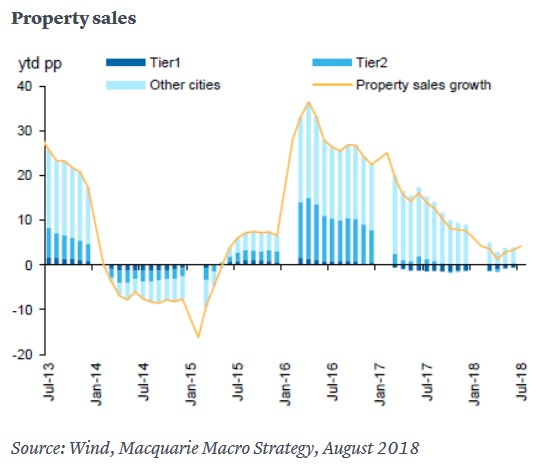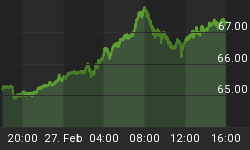Real estate is the real driver of the Chinese economy—accounting for some 30 percent of GDP—but China’s red-hot real estate market remains a major challenge for Beijing as it tries to maintain economic growth in the face of escalating trade wars with the U.S.
The Chinese government has constantly switched between easing and tightening policies in a bid to keep the sector growing, but there a big dilemma: The industry defies regulators who have been trying to cool housing prices for years. And now, there’s a very real risk that a drop in prices could lead to a sharp slowdown in real estate growth and end up hurting the economy.
Despite reforms in recent years, there’s little question that China’s real estate sector is in bubble territory.
According to data from the National Bureau of Statistics, domestic property prices have been rising for more than three years--the longest streak in a decade. The 100 City Price Index by SouFun Holdings Ltd has climbed 31 percent since the beginning of 2016 to nearly $202 per square foot, about 38 percent higher than the median price of house in the U.S. despite the fact that wages are 7x higher in the States.

(Click to enlarge)
Source: CNBC
Government’s Misguided Response
That has put home ownership beyond the reach of most. Worried about the unfolding situation, some cities have slapped a ban on corporate purchases of residential properties to limit speculation. While that's a good move for controlling risk, the next one isn’t … Related: Investors Grow Weary Of Chinese Tech ETFs
China's State Council has hatched a plan to encourage more rentals. Part of the plan is to offer tax breaks to developers to encourage them to rent out more instead of selling.
But that’s a misguided plan for several reasons. First off, rental yields in China are too low to lure developers to rent. Yields in big cities such as Beijing and Shanghai currently hover around 1.5 percent, way lower than three percent in the U.S. and four percent in Canada.
The big problem is that wages in the country have been unable to keep up with the credit-fueled rise in property prices. That’s not something that tax breaks can fix.
Worse still, developers are heavily weighed down with debt, much of it short-term. Many are paying 7-8 bond yields with debt-to-equity ratios of averaging an astronomical 380 percent. Encouraging them to rent out their housing inventory is a big money-losing trade because renting to consumers for a 1.5-percent yield while paying cost of capital as well as debt and equity cost would mean losing 8.5 percent. Actively encouraging that is not standard economic procedure.
The problem is further compounded by how rental agreements are structured in the country. Typically, renters borrow money from banks and make a one-time upfront payment to developers that covers around five years. Although the upfront payment provides some short-term cash flow relief for the developers, all it does is simply delay debt repayments and shrink the loss on unsold inventory.
Related: Social Media Giants Crack Down On Global Info War
Underlying all this is the fact that the Beijing government is wary of allowing property prices to decline in any meaningful way because politically, homeowners have come to expect property values to always increase.
In fact, any kind of reforms that threaten this dynamic has in the past led to public protests. A reset in housing prices would also pose a serious financial risk given that household lending now makes up 22 percent of assets for financial institutions.
But eventually something’s got to give, and the economy could find itself in much bigger trouble than the ongoing trade war challenges as the housing market goes through a big correction.
By Alex Kimani for Safehaven.com
More Top Reads From Safehaven.com
















